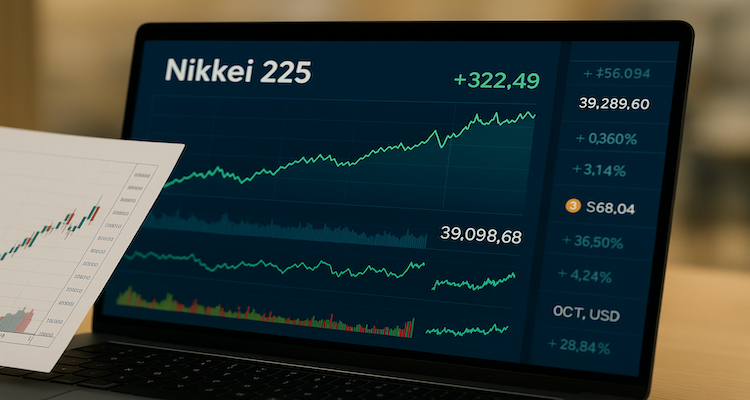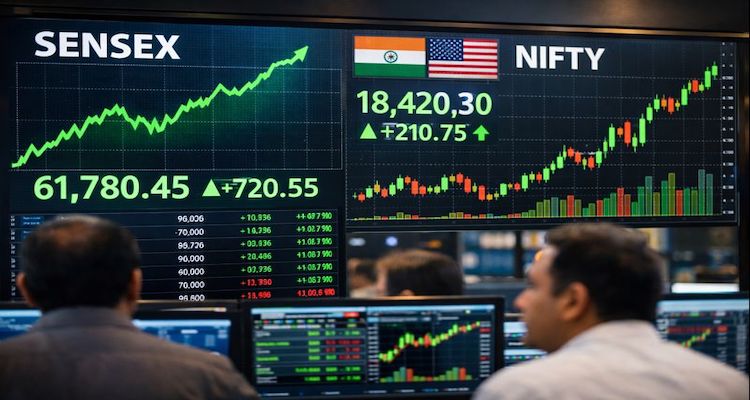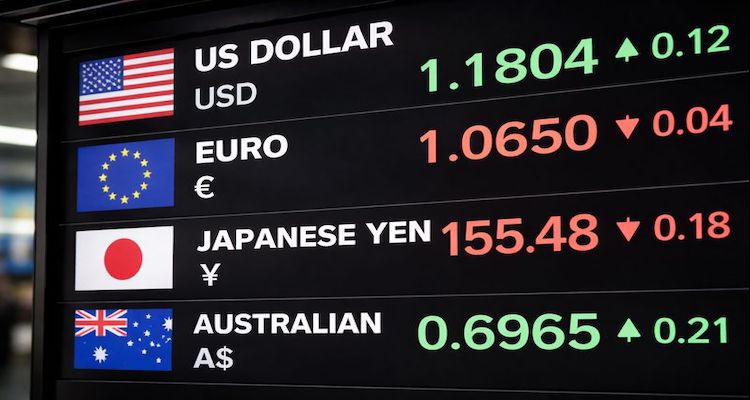Japan and Taiwan stocks hit record highs as AI-fueled tech optimism and U.S. inflation expectations boosted hopes of Federal Reserve rate cuts.
Asian Markets Ride Wave of Optimism
Asian equities surged on Thursday, with Japan and Taiwan leading the charge to fresh record highs. The rally was fueled by booming technology shares and rising confidence that U.S. inflation will remain tame enough to clear the way for the Federal Reserve to cut interest rates, potentially more than once this year.
The momentum marks a turning point for regional markets that have been weighed down for months by global economic uncertainty, weak Chinese demand, and geopolitical risks. Now, investors are finding fresh reasons to buy.
Central Banks in the Spotlight
All eyes remain on central banks. The European Central Bank is expected to leave borrowing costs unchanged later in the day, but with Europe’s trade outlook strained and political divisions widening, policymakers are unlikely to close the door on further easing.
Meanwhile, the Federal Reserve has become the central focus for global markets. Investors are betting on a rate cut at next week’s meeting, encouraged by signs that U.S. inflationary pressures are stabilizing.
Japan and Taiwan Lead Record-Breaking Rally
Japan’s Nikkei 225 climbed 0.8% to an all-time high, lifted by gains in technology, energy, and utility companies. Taiwan’s benchmark index also hit a record, adding 1% as chipmaking powerhouse TSMC rose 2.5%.
One of the day’s standout stories came from SoftBank Group, which soared nearly 9%. The jump followed a historic rally in its U.S. partner Oracle Corp., which spiked 36% overnight on Wall Street, its strongest single-day performance since 1992. Oracle’s forecast of surging demand from artificial intelligence firms for cloud services has reverberated across global tech markets.
“Oracle’s bullish outlook underscores how AI is reshaping corporate investment strategies,” said one Tokyo-based analyst. “It’s giving a second wind to companies positioned at the center of the AI supply chain.”
Tech’s AI-Driven Momentum
The AI boom is increasingly becoming the backbone of equity market rallies worldwide. From chipmakers like TSMC to cloud-service giants like Oracle, investor enthusiasm reflects a broader recognition that artificial intelligence is not a short-term fad but a structural driver of demand for hardware, data centers, and connectivity.
SoftBank’s exposure through its Vision Fund and its heavy bets on AI-linked firms added to the excitement in Tokyo trading. Analysts suggest that as AI adoption accelerates across industries, the spillover effect will continue to lift both established tech leaders and emerging players.
This trend also signals a deeper decoupling from traditional cyclical sectors. “We’re entering a market phase where tech particularly AI infrastructure dictates global equity direction in a way that energy or industrials once did,” noted a Barclays research report.
Uneven Regional Picture
Not every market joined the rally. MSCI’s broad index of Asia-Pacific shares outside Japan slipped 0.1%, weighed down by Hong Kong’s Hang Seng, which dropped 0.9%.
China’s sluggish economic recovery and ongoing property market stress remain a drag on regional sentiment. For investors, this split underscores how AI-driven growth has concentrated momentum in a few high-tech economies, while broader Asian equities remain more exposed to structural headwinds.
Fed Policy: A Shifting Inflation Narrative
Markets were buoyed by a softer-than-expected U.S. producer price index (PPI) reading earlier in the week. That data has reinforced expectations for a series of Federal Reserve rate cuts this year.
Futures markets now fully price in a quarter-point cut at next week’s Fed meeting, with a small chance of a more aggressive half-point move. The August Consumer Price Index (CPI), due later in the day, will provide a decisive test.
A Reuters poll suggests headline inflation likely rose 2.9% year-on-year, the sharpest since January, while core inflation is expected to remain at 3.1%.
Julien Lafargue, chief market strategist at Barclays Private Bank, said unless CPI shocks to the upside, investors will keep faith in a dovish Fed.
“With inflation pressures easing, the Fed has greater room to stimulate the economy more assertively,” Lafargue explained. “That’s a pivotal shift from the inflation-constrained stance we’ve seen over the past two years.”
Currency and Bonds Stay Steady
The currency market was largely muted. The U.S. dollar index held flat at 97.81, just above a seven-week low, while the Australian dollar steadied at $0.6616 after briefly touching a 10-month peak.
Bond markets showed modest moves. The 10-year Treasury yield rose to 4.05% after falling sharply the previous day, while the 30-year yield climbed to 4.70%. Investors are watching Thursday’s $22 billion auction of long-term U.S. debt closely as a gauge of market appetite.
Commodities Supported by Geopolitics
Oil prices remained stable after rallying more than 1% earlier in the week. U.S. crude traded at $63.65 per barrel and Brent crude at $67.49. The resilience came after Poland intercepted suspected Russian drones in its airspace and as Washington urged the European Union to tighten sanctions on Russian oil buyers.
Safe-haven demand also kept gold near historic highs, inching up 0.1% to $3,644 an ounce.
The Takeaway: AI and the Fed Set the Tone
The latest record-setting gains in Tokyo and Taipei underscore two forces dominating global markets: the transformative power of artificial intelligence and the shifting stance of the Federal Reserve.
AI momentum is breathing new life into technology stocks, offering investors a growth story even in uncertain times. At the same time, easing inflation has created space for the Fed to pivot toward supporting the economy, a move with global ripple effects.
But with geopolitical flashpoints still simmering and uneven regional growth, the path ahead remains volatile. Markets will now turn to U.S. CPI data for confirmation that the rally has legs.











